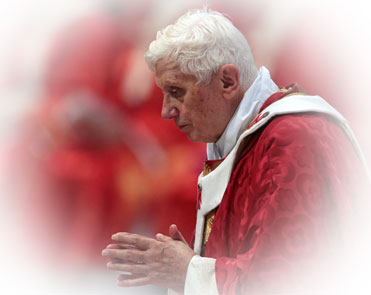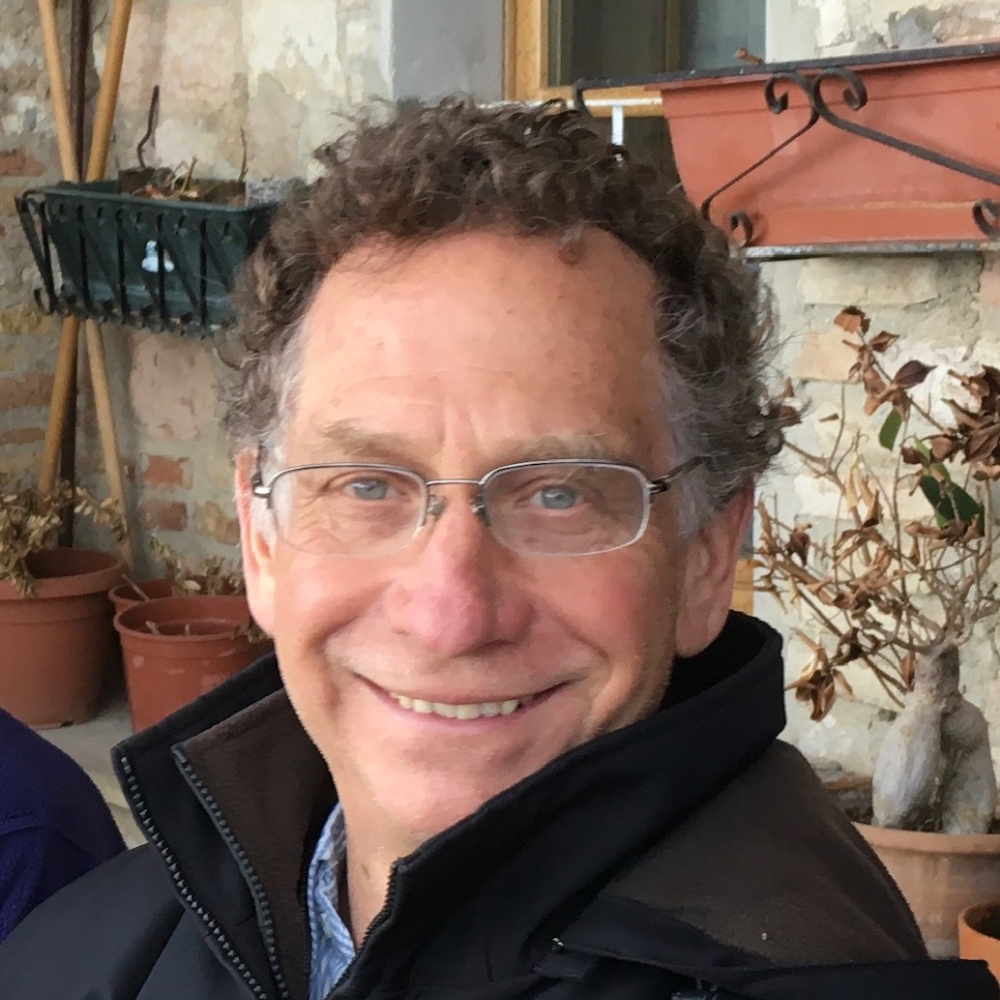August-September 2012 — Editorial — Benedict is spending his summer at Castle Grandolfo outside Rome, preparing for a trip to Lebanon in September and for the “Year of Faith” beginning in October. He is also working on his book on Jesus.

Pope Benedict XVI celebrates Mass after the pallium ceremony in St. Peter’s Basilica on June 29 (CNS photo/Paul Haring. The cover photo of Archbishop Müller is also by Paul Haring)
“Jesus… experiences anguish before the power of death… the dread natural to every living creature in the face of death. In Jesus, however, something more is at work. His gaze peers deeper, into the nights of evil. He sees the filthy flood of all the lies and all the disgrace he will encounter in that chalice from which he must drink. His is the dread of one who is completely pure and holy as he sees the entire flood of this world’s evil bursting upon him. He also sees me, and he prays for me.” — Pope Benedict XVI, homily for Holy Thursday, April 5, 2012, reflecting on the agony of Jesus in the Garden of Gethsemane, before his arrest
Pope Benedict, in the summer of 2012, at the age of 85, in the eighth year of his pontificate, in addition to his pastoral journeys and administrative duties (like the much discussed Archbishop Müller appointment, our Cover Story this issue), continues steadfastly to carry out his primary mission: to proclaim the truth of the faith to our time, a time filled with distractions and opposing messages which mock and denigrate the faith he so courageously and eloquently defends.
In doing this, he sets himself against “the world” and against the great, underlying lie of our world: that man is God.
The essence of Benedict’s message is that there is truth, and that this truth is stronger than the lies—personal and communal, private and public—that cripple and destroy us.
Truth is Christ—yesterday, today and forever.
The essence of this saving message is proclaimed, and made present, each time a preiest celebrates the Holy Sacrifice of the Mass—thousands of times, tens of thousands of times, each and every day. It is also proclaimed, quietly, in each act of mercy, forgiveness, sacrifice and true love which any person performs. What is the message? That God’s truth and power, his reign, will triumph even over lies, even over sins, even over the seeming finality of death. Is the message that everything since the coming of Christ, will now be sweet and good, without problems, sorrow, sacrifice? No. Is it that lies will be immediately dispersed, that they will cause no harm? No.
On Holy Thursday this year, April 5, in St. John Lateran, during the Missa in Coena Domini, the Mass of Our Lord’s Supper, the Pope pointed out the fundamental lie which destroys souls, and then destroys societies: that man desires to be, and even comes to believe that he is, God.
“The Letter to the Hebrews describes the struggles of Jesus on the Mount of Olives as a preiestly event, ” the Pope notes. “In this prayer of Jesus, pervaded by mortal anguish, the Lord performs the office of a priest: He takes upon Himself the sins of humanity… The natural will of man Jesus recoils in fear before the enormity of the matter. He asks to be spared. Yet as the Son, he places this human will into the Father’s will: not I, but you.
“In this way he transformed the stance of Adam, the primordial human sin, and thus heals humanity. The stance of Adam was: not what you, O God, have desired: rather, I myself want to be a god. This pride is the real essence of sin. We think we are free and truly ourselves only if we follow our own will. Good appears as the opposite of our freedom. We need to be free of him—so we think— and only then will we be free. This is the fundamental rebellion present throughout history and the fundamental lie which perverts life.”
Pope Benedict’s words here go a long way towards explaining why our modern world is so troubled; why our “science” is so “ignorant” as to risk even poisoning our planet, our home; why our politics, which should seek the commonweal, are so often corrupt and deceitful; why so many declare evil to be good, and good evil. It is because of human pride, because of the desire to be God.
“When human beings set themselves against God, they set themselves against the truth of their own being and consequently do not become free, but alienated from themselves,” Benedict continued. “We are free only if we stand in the truth of our being, if we are united to God. Then we become truly ‘like God’—not by resisting God, eliminating him, or denying him. In his anguised prayer on the Mount of Olives, Jesus resolved the false opposition between obedience and freedom, and opened the path to freedom. Let us ask the Lord to draw us into this ‘yes’ to God’s will, and in this way to make us truly free. Amen.”
There is no better way to end than to repeat these words of the Pope: “Lets us ask the Lord to draw us into this ‘yes’ to God’s will, and in this way to make us truly free.”



Facebook Comments